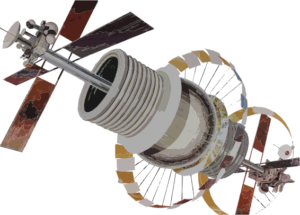Programs
The Scenario
SDCA’s programs are set in a future space context, allowing students to challenge themselves and think broadly and creatively.
Adopting the mantle of an engineering firm, teams respond to engineering criteria and investigate space settlement alternatives.
Each year, the ASDC Champions are guaranteed a place at the Kennedy Space Center for the International Space Settlement Design Competition – proving Australian students can match it on the world stage!
Competition Timeline: The Future
Welcome to 50 years in the future. Welcome to the future. Countries of the world have overcome their differences to work together to expand humanity’s reach into the solar system. Technology has improved and is continuing to progress at a vast rate, allowing spacefaring organisations participants to envision even further into space.
This expansion requires vast new engineering marvels, space settlements and stations capable of supporting thousands of intrepid human settlers. Who will answer the call to design these settlements?
Every scenario is set in a different context, however the below is a general guide of how settlements in space may develop in the future.
-
Present Day
-
2023
Several major aerospace companies pool resources to counter the increase in solar radiation and greenhouse gases, and eventually become the Foundation society.
-
2025
A solar shield Svalinn, named for the shield from Norse mythology that stands before the Sun and protects the planets from its full intensity, is completed measuring 700,000 square kilometres.
-
2030s
Foundation Society establishes Lunar habitats to identify resources.
-
2031
Alexandriat, the first Earth-ortbit settlement, is established. Named for Alexander the Great, it functions as a repair facility for the solar shield Svalinn and as a research and manufacture facility.
-
2040
Construction begins on the second Earth-orbit settlement, Bellevistat, named for the pristine views of Earth enjoyed by its residents. It serves primarily for large-scale materials refining, heavy industry and mass production.
-
2065
The third Earth-orbit settlement, Cibolat, is completed. Named after one of the legendary "Seven Cities of Gold", it is a dedicated refinery, providing processed materials for the manufacturing capabilities aboard Bellevistat. It obtains raw materials from asteroids brought in close by Atlas, an asteroid retrieval facility.
-
2070s
Construction begins on Alaskol, the first Lunar settlement. It provides a source of near-Earth construction materials and rocket fuel.
The first Mars-orbit settlement, Aresam, is designed to support and plan the terraforming of the Martian atmosphere.
Argonom, the first martian surface settlement, is designed to enable close atmosphere monitoring during terraforming and provide tourist accommodation to those curious to visit the red planet.
The Foundation Society
The Foundation Society is the philanthropic organisation tasked with establishing commerce outside of Earth. As a major solar system non-profit organisation, they are the client that commissions each new space settlement in the futuristic scenario.
For each new space settlement planned within the solar system, the Foundation Society releases a Request For Tender (RFT), which is the overarching engineering document that details the specific attributes of the new settlement. The RFT is provided to major engineering companies, who are then tasked with designing a space settlement, and providing their design back to the Foundation Society via either marketing material (JSDC) or an engineering design (Space Design Workshop, ASDC).
For the full history of the Foundation Society, refer to the competition history on the SpaceSet website.
Your Company
Each team that participates in SDCA competitions assumes the mantle of a major aeronautical engineering firm separated into five key business units:
Structural Engineering
Operations Engineering
Human Factors and Safety Engineering
Automation Design and Services
Business Development, Scheduling and Costing
Students participating in SDCA events form a corporate structure, becoming members of these departments, and work in a professional environment to respond to the RFT and deliver the required tender response back to the Foundation Society.



